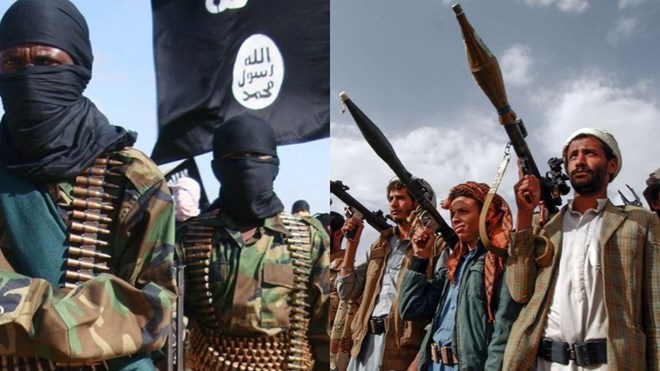Why Kenya Should Be Concerned About the Growing Al-Shabaab-Houthi Alliance
The emerging alliance between al-Shabaab and the Houthis poses a major security risk for Kenya. With increased arms flow, maritime threats, and regional instability, Kenya must act swiftly to counter this growing danger.
OPINIONPOLITICS
Emmanuel Makome, Markloyd Mugambi
2/28/20252 min read


Why Kenya Should Be Concerned About the Al-Shabaab-Houthi Connection
A Growing Threat in the Region
Kenya has long been on high alert when it comes to al-Shabaab, the terrorist group responsible for numerous attacks on its soil. However, the emerging cooperation between al-Shabaab and the Houthis should raise new security concerns for the country. This alliance, which is reportedly facilitated by al-Qaeda in the Arabian Peninsula (AQAP), could significantly enhance al-Shabaab’s operational capabilities, making the group even more dangerous to Kenya and the East African region.
Strengthened Al-Shabaab Operations
One of the most immediate threats posed by this alliance is the potential for increased arms flow to al-Shabaab. The Houthis, backed by Iran, have access to advanced weaponry, including drones, missiles, and explosives. If these resources make their way to al-Shabaab, it could lead to a sharp escalation in the scale and sophistication of attacks in Kenya. The group has previously carried out large-scale attacks on Kenyan soil, including the Westgate Mall (2013), Garissa University (2015), and DusitD2 (2019) massacres. With better weapons and funding, al-Shabaab could increase both the frequency and intensity of such attacks.
Maritime Security Risks
Kenya’s coastline, a vital economic hub, could also be at risk due to this emerging alliance. The Houthis have demonstrated their ability to disrupt shipping lanes in the Red Sea, a critical global trade route. If they extend these capabilities to the East African coast through al-Shabaab, Kenya’s ports, particularly Mombasa, could become targets for piracy or maritime terrorism. This would have severe economic consequences, disrupting trade and deterring foreign investment.
Regional Destabilization
The growing relationship between these groups also has broader geopolitical implications. Al-Shabaab has already expanded its influence beyond Somalia, carrying out attacks in Kenya and even threatening Uganda. If the Houthis and AQAP actively support al-Shabaab, it could further destabilize East Africa, creating a more complex and difficult security environment for Kenya and its neighbors. This could strain military resources and force Kenya to increase defense spending at the expense of other critical development initiatives.
A Call for Action
Kenya must take proactive measures to counter this evolving threat. Stronger intelligence-sharing with regional and international partners, enhanced border security, and stricter monitoring of arms smuggling routes should be top priorities. Additionally, Kenya must work closely with allies such as the United States and NATO to ensure al-Shabaab’s access to advanced weaponry is disrupted before it reaches the group.
As the geopolitical landscape shifts, Kenya cannot afford to be complacent. The al-Shabaab-Houthi connection is not just a security concern—it is a direct threat to Kenya’s stability, economy, and long-term peace. Addressing this challenge with urgency and strategic foresight is the only way to safeguard the nation’s future.
Podcast
© 2026. Ke Press Global. A Ke Harbor Company. All rights reserved.
FOLLOW KE PRESS GLOBAL ON :
Contact us




